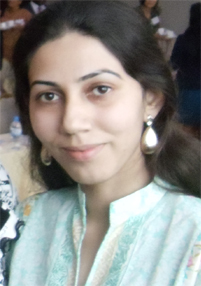Zara'S Right To Education Excluded From The Voluntary National Review (VNR) Pakistan 2019 Posted By Baela Raza Jamil
Zara is 9 years old; she remains confused about learning after a tough four years in school without really understanding how to learn. She is part of a large statistic in Pakistan one of those children going to school but not necessarily learning joining globally 617 children in school and struggling to learn (UNESCO 2017). Zara has three friends; Sara who is not in school as she dropped out in grade 2 because her father became paralysed and not to forget Shaheen who never actually enrolled in school ever as there was little point to go to a school where there were no teachers for grades katchi, one and two, and finally Shakira who had polio when she was two and sadly no one is very kind to her; but Zara loves them all.
The crisis of learning and schooling highlight the challenges of quality, equity, access and inclusion in Pakistan and many low and low middle income countries globally. The call for SDGs 2030, 17 goals and 169 targets was a collective one. Endorsed in 2015 by 193 nations of the world at the UN General Assembly, Pakistan has embarked on a committed pathway for ownership of SDGs through a National Assembly resolution (2016) resonating well with fundamental rights, 25 A or right to education for all 5-16 year olds as a state obligation, Vision 2025, and sector strategies across Pakistan. The enthusiasm for SDGs in Pakistan is well recognized by the UN family and global partners with National and Provincial SDGs Units established in the Ministry/Depts/Board of Planning, Development and Reform. The SDG units liaise closely with the line departments and the ministries of Finance ensure alignment of budgets to SDGs 2030 commitments, a robust approach by the Govt. of Pakistan. Agenda 2030 is embedded in national, provincial policies, sector plans, targets and monitoring mechanisms for the global/local indicators. There are National/Provincial Parliamentary caucuses for SDGs 2030 with capacity building of elected members to actively engage with SDGs 2030 as another ‘off track’ statement is not a choice for Pakistan. SDGs 2030 are a national /locally owned agenda with multiple stakeholders including civil society who are a part of the larger global constituencies deeply invested in the universal pursuit of human well-being ending poverty through a holistic linked approach to all 17 SDGs.
The Global Partners working under the UN umbrella convene technical/advocacy meetings annually, bi-annually and every four years to review the progress that the world community had agreed to so willingly. One of the annual meetings that takes place prior to the UN General Assembly each year since 2016 is that of the High Level Political Forum (HLPF) under the Chair of the Economic and Social Council (ECOSOC) reporting on progress of selected SDGs and/or all SDGs if the governments so wish.
In July 2019 (9-19), the fourth HLPF was held in New York, that focused on reviews of selected SDGs by member countries: SDG 4: Education; SDG 8: Decent Work and Economic Growth; SDG 10: Reduced Inequalities; SDG 13: Climate Action; SDG 16: Peace, Justice & Strong Institutions); and SDG 17: Partnerships. The Government of Pakistan opted to participate this year for the first time submitting a Voluntary National Review (VNR) for sharing progress on selected SDGs and others as well. Pakistan presenting its first VNR at HLPF 2019 is a milestone, just prior to the stocktaking UN SDG Summit in September 2019. The preparation of the VNR is government-led through a consultative approach to reflect ownership at national, provincial, local government levels with presence of civil society and private sector etc. Pakistan is known for ensuring that voices are well reflected through such platforms. This is the process adopted by the Ministry of PD&R. Pakistani CSOs have been providing systematic inputs to the design of the SDGs globally since 2013 onwards as active players in the human development agenda. They have not just provided evidence but remained abreast of the national, local and global nuances of this process; monitoring and reporting on the targets. Since October 2018, after the Government’s Letter was received officially by the ECOCOC /HLPF secretariat for preparing the VNR 2019, the CSOs active in influencing evidence based policy debates have been engaged with federal/provincial Ministry PD& R SDG Units for an active role in providing high quality citizen inputs. These were duly provided by the Inclusive Education partners working as an alliance since the National Disability Conference and Global Disability Summit in 2018- with key asks for “tackling stigma and discrimination, inclusion in education, routes to economic empowerment and harnessing technology and innovation’. These recommendations were refined through a nationwide assembly of disabled persons organizations (DPOs)/CSOs in December 2019 (Sightsavers, STEP, ITA, CBM, SEDA, Handicap International, PDA and National Forum supporting Women with Disabilities). The recommendations were formally presented to the Members of Parliament and head of the federal SDG Unit to ensure its solid reflection in the national VNR, as voices of responsible and committed citizens. Idara-e-Taleem-o-Aagahi (ITA) known for the ASER Pakistan report 2018 on learning that is covered in the annual Economic Survey of Pakistan 2018-19 (chapter 10), provided inputs along with an offer to support a collective effort to finalize the VNR 2019 especially for SDG 4 with bold links to the other key SDGs under review at HLPF 2019. The government began the process for finalizing the VNR early in November 2018 and seemed to be in a rush to finish the Report by December 2018. In fact eventually the government finalized it in June 2019 and uploaded this on
( HLPF website)
What has shocked the civil society working on education and inclusion is that the anchor SDG 4 on Education is completely missing in substance from the VNR 2019. What does this ‘missing SDG 4’ convey to the World community on behalf of the 215 million People of Pakistan especially when the Prime Minister in his maiden speech (Aug. 2018) gave high priority to quality, inclusive education and end to stunting. How can the ongoing high quality technical consultations across all federal and provincial levels for education policies, the new Education Sector Plans (ESPs) well aligned with SDG 4 and Article 25 A, be left out of the VNR 2019. The ESPs being finalized for 2019-2023 are not complete until signed off by the Local Education Group (LEG) where several CSOs and government are jointly present. Today in Pakistan each provincial govt. is courageously framing its data driven sector plans, tracking SDG 4 /25 A transparently all 11 global and 32 thematic indicators. The decision to exclude SDG 4 from the VNR 2019 – not only undermines the collective efforts underway to upgrade attention, resources and actions to Education as a catalytic category I sector but is giving an erroneous message to the world. How can a coordinating Ministry such as PD&R and its members set aside vital constituencies, thus undermining the fidelity of the VNR Report 2019.Surely this is not what the Govt. of Pakistan intends to convey to the world community about its commitment to SDGs 2030! It undermines not just SDG 4 but also SDG 17 on partnerships that underpins all SDGs in a democracy? Certainly not an intelligent move – to cast aside the case of Zara and her three friends Shaheen, Sara and Shakira seeking 12 years of education as promised under article 25 A and SDG 4.
Baela Raza Jamil
CEO ITA: Member of the 12th Five Year Plan Education Committee;
Commissioner Education Commission; Member Girls Platform for Education
Email; Baela.jamil@itacec.org
Disclaimer: The views expressed here are those of the authors and do not necessarily represent the views of Idara-e-Taleem-o-Aagahi (ITA)





